If we want to understand the psyche of a narcissist, we have to get to the root, which is often a fraught childhood and dysfunctional upbringing. In this article, we attempt to establish the link between narcissism and childhood abuse, and how childhood trauma creates narcissists.
The word narcissist is increasingly becoming a buzzword in our individualistic modern society. But does narcissism merely mean being self-centered or do we need to look deeper into the traits of narcissists to fully grasp the extent of the pain that narcissism inflicts upon others?
Although much work is still needed in this area, it’s a widely accepted fact that genetic factors, home environment, and relationship dynamics within a family heavily influence the overall personality development of a child. Naturally, like any other psychological issue, the formative years of one’s childhood play an important role in Narcissistic Personality Disorder.
What Is Narcissism?
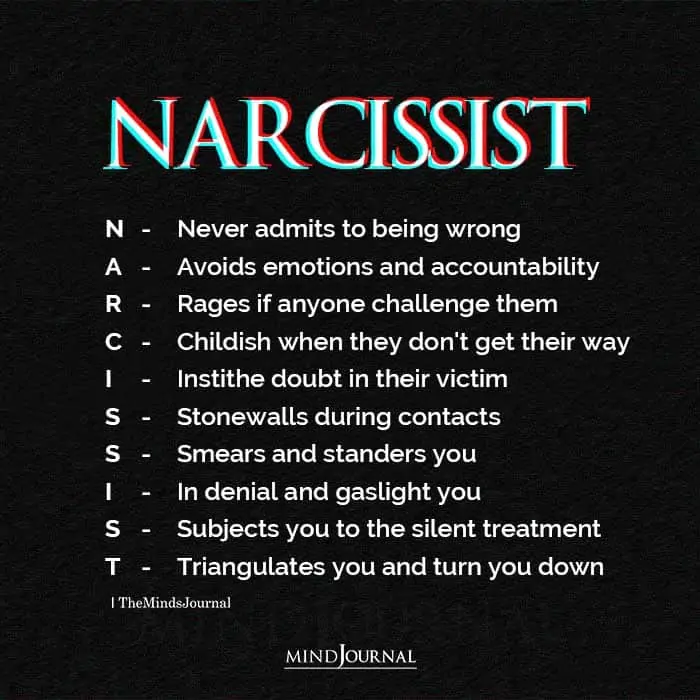
Before continuing to elaborate more on how childhood trauma creates narcissists, let’s get clear on the definition and characteristics of a narcissistic personality.
Mental health professionals define narcissism as a continuous behavioral pattern of grandiosity with a constant demand for admiration, and a shockingly missing sense of empathy or the capability to feel others’ emotions.
Some Other Features Of A Narcissistic Personality:
- An inflated sense of self-importance
- Desire to be always treated as someone special
- Covert narcissists project themselves as someone timid and ineffective but secretly fantasize about their over-hyped sense of self.
Read: 6 Reasons Empaths Freeze Around Inauthentic People
How Childhood Trauma Creates Narcissists?
Now let’s look at some of the ways through which a dysfunctional upbringing and childhood trauma create narcissistic personalities.
1. Absorbing Narcissistic Abuse
In a family where a child faces narcissistic abuse from one or more parents, they develop narcissistic tendencies as a defensive response to excessive criticism, physical or mental abuse, or neglect. Narcissism emerges from the emotional injuries of shame, hurt, deprivation, and loss. The child becomes bitter with all the trauma faced at such a tender age.
2. Pain That Gives Way To Self-Centeredness
A narcissistic parent does not show any empathy towards their child and will not take into account the child’s feelings, fears, or needs. This makes the child responsible for their own happiness and well-being from a very early age. This might lead to self-centeredness and as the child grows they will tend to get more and more focussed on themselves, with little or no regard for others. As adults, they might feel their problems are much bigger and more important than others.
3. External Validation
When someone grows up in a dysfunctional family where the home environment always hinges on the ever-changing mood of the caregiving parents, the need to placate others is internalized by the growing child. The child’s needs, desires, and authentic self are never acknowledged or valued in the family. Instead, the vulnerable kid learns the lesson that if they want to remain safe and unharmed, they need to earn the approval and validation of the adults. In this disturbingly messed-up dynamic, the child becomes responsible for the emotional needs of the parents.
As a consequence, even after the child grows up, they carry with them the baggage of external validation. The entire point of their existence becomes earning praise and adulation of the world.
4. Victim Identity
Being subjected to repetitive abuse and neglect instills a sense of victim identity in the young minds of a suffering child. As a result, they might grow up with a lot of resentment towards others. Although it is true that as a child they were in fact victimized, even as an adult it becomes difficult for them to come out of this victim mentality and own up for their mistakes.
Adult children with narcissistic tendencies therefore always resort to either martyrdom or blame others whenever anything goes wrong in their life, and fail to see their own shortcomings.
5. Sensitivity To Criticism
Classic narcissists have a full-blown ego that prevents them from entertaining any view that disrupts their make-believe self-image of superiority, but those who have suffered childhood trauma exhibit the same sensitivity to criticism, albeit for entirely different reasons. Growing up with a barrage of belittling remarks makes them too fragile to handle even the most constructive criticism or negative feedback.
6. Unequal Relationships
Sometimes in a toxic household, a child witnesses an unequal dynamic between the parents, where one is always subjugated and even abused. In families where this kind of blatant disregard of personal space and safety is normalized, the younger members grow up with a very wrong notion about equality in relationships. As a long-lasting effect, grown-up kids from dysfunctional families seek out partners who always cater to their narcissistic demands.
Sometimes The Apple Does Fall Far From The Tree
Childhood trauma is thus both the cause and effect of a narcissistic personality. Although a child who does not get unconditional love, care, and nurturance while growing up may show traits of a narcissist, it is not always the case. Not every child of narcissistic parents grows up to be one as well. Healthy and positive coping mechanisms, with a good dose of self-awareness, can make all the difference.
Childhood trauma creates narcissists but there are several ways in which an adult child of narcissistic parents can seek help and grow out of their toxic tendencies.
Read: The 15 Strange Behaviors Of An Authentic Empath.
Frequently Asked Questions
Can trauma in childhood affect adulthood?
Yes, childhood trauma can leave long-lasting psychological implications, that can manifest in adulthood, and influence various aspects of our life.
What childhood trauma creates a narcissist?
Childhood trauma such as neglect, witnessing violence, physical, mental, or sexual abuse, etc., can give birth to narcissistic tendencies in a person.
Does childhood trauma cause personality disorders in adults?
Childhood trauma can cause some serious adverse psychological disorders in adults.
How childhood trauma affects adulthood?
If a child is repeatedly subjected to traumatic experiences, their sense of self gets impaired, and they grow trust issues. As they grow up, they might develop a poor self-image and struggle to maintain healthy boundaries.
Does childhood trauma cause narcissism?
In some cases, childhood trauma can be attributed to the development of narcissistic traits in adults.
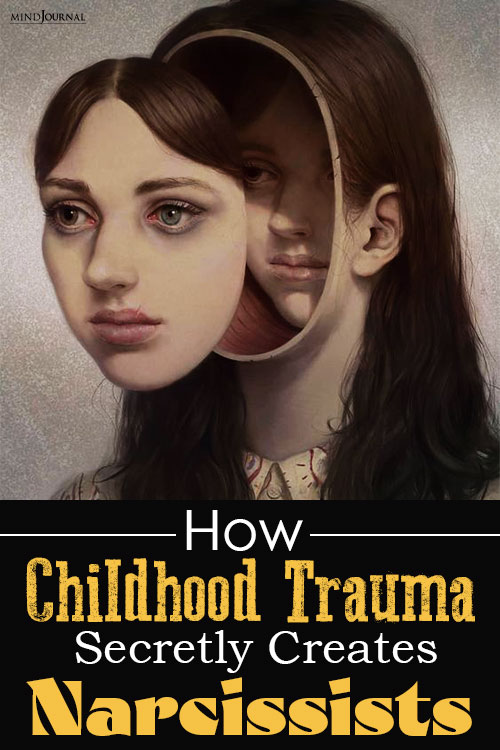
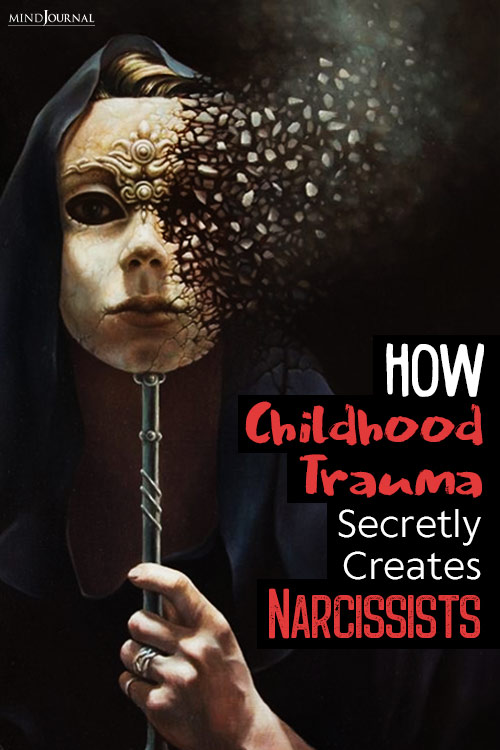
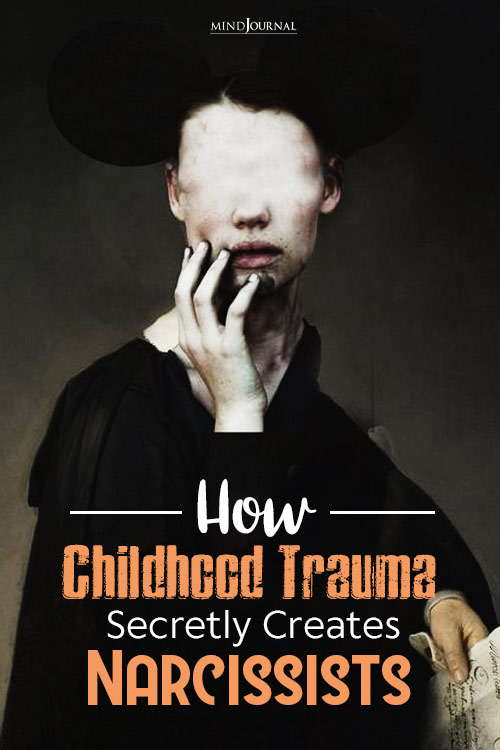
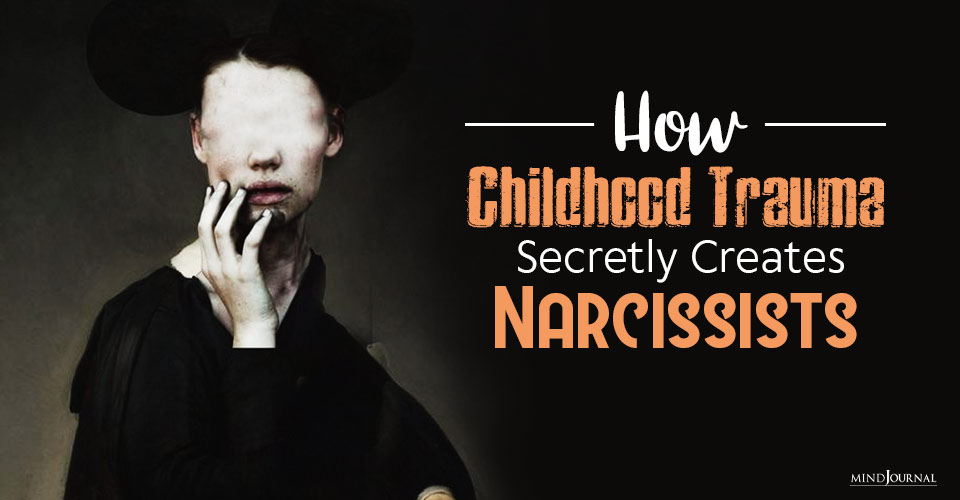







Leave a Reply
You must be logged in to post a comment.